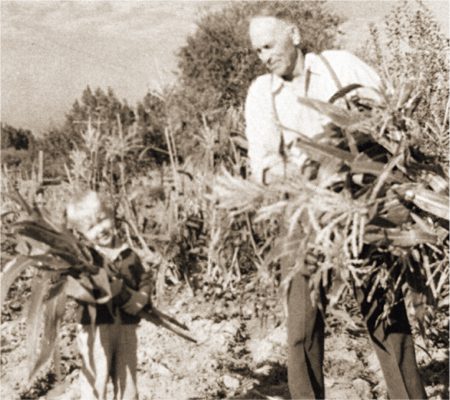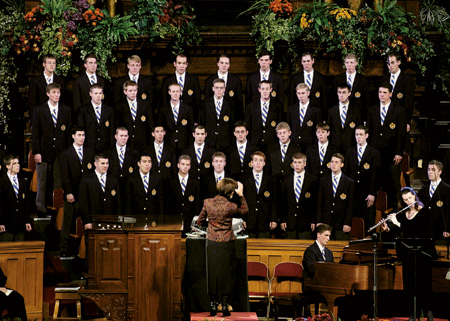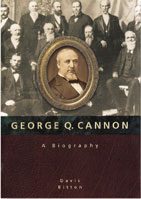Life’s greatest successes may attract the attention of only a select few.
My mother’s father, Helge Swenson, came to this country from Sweden as an 11-year-old boy and had to make his own way through life with hard work. During much of his youth, he worked for and boarded with neighbor farmers; his family was too poor for all the children to live at home and tend exclusively to their own farm. There was little opportunity for formal education in his life. After marriage he maintained his family primarily by farming and service as the Utah County agricultural inspector. He was a great man in my eyes because he was a man of integrity, hard work, and deep spirituality, full of love for others and beloved of all. I loved to be around him and aspired to be like him.
When I came to BYU from New Jersey as a freshman, my grandparents met me and took me to my dormitory on campus. As we were moving my things into my room in Hinckley Hall, Grandpa Swenson remarked somewhat wistfully, “If I had had an opportunity for education like this, I would really have amounted to something.” His comment surprised me. What did he mean, “amounted to something”? I hoped someday to amount to something by coming close to his level of attainment. He meant, I suppose, that with the advantages of a university education, he could have qualified for any number of prominent positions and enjoyed professional and public recognition for his likely accomplishments on a much broader stage. I’m convinced that with his native talent and strong work ethic he would have been relatively famous and well compensated in life had he been blessed with the same opportunities that I and most of you enjoy. Even so, he would not have been a greater man. His true greatness would still have been rooted in the same qualities of character he already possessed and in the steady discipleship to the Lord Jesus Christ that marked his life to the end.
I remember the comments of Professor James Q. Wilson of UCLA, who was the commencement speaker in 1994 when my daughter received her degree from BYU. He titled his remarks “The Moral Life.” He said:
Commencement speakers are supposed to urge you to rise to the highest challenge, pursue the impossible dream, excel at the loftiest ambitions. I will not do that. It is too easy; it is too empty. The easiest thing to do is to support great causes, sign stirring petitions, endorse grand philosophies. The hardest thing to do—and it is getting harder all of the time—is to be a good husband, a good wife, a strong father, a strong mother, an honorable friend and neighbor.
Several years ago, when I was serving as executive director of the Family and Church History Department, my wife, Kathy, and I visited officials at the Chinese National Archives in Beijing. In one conversation we spoke of the value of history, particularly family history, in our lives here and now. One of the Chinese officials told me about a tradition of honesty that had come down through many generations in his family. It is referred to by them as “the Four Knows.” He had an ancestor who served as a government officer long ago in the days of one of the Chinese dynasties. One day the ancestor was approached for a favor and offered a bribe.
The man offering the bribe argued, “No one will know.”
My host’s ancestor replied, “I will know; you will know; the earth will know; heaven will know.”
That man’s refusal to dishonor his position has been remembered and repeated through all the generations of his descendants since. As they teach each other the Four Knows, each is motivated to maintain the family tradition of integrity. He may have earned distinction in his own time anciently, but that man’s true greatness lies in how his life has influenced his descendants ever since.
This article is an excerpt of a commencement address delivered Aug. 16, 2007, by Elder D. Todd Christofferson, a member of the Presidency of the Seventy of The Church of Jesus Christ of Latter-day Saints. The full text is available online at speeches.byu.edu.










